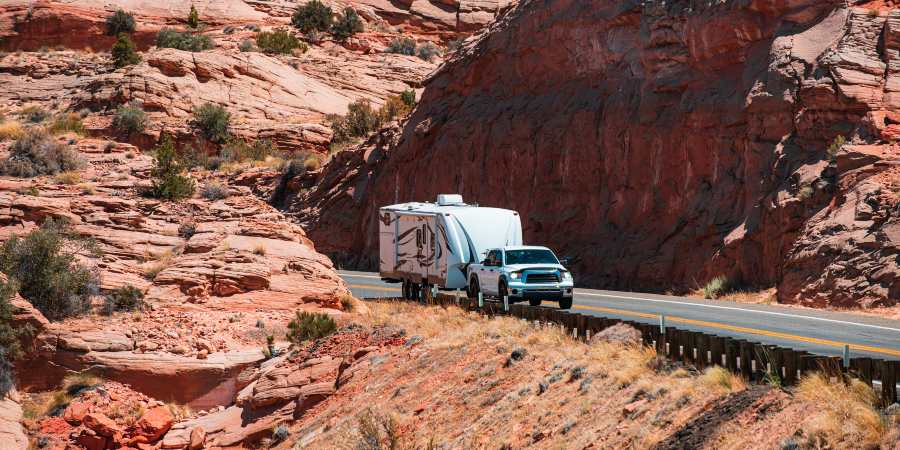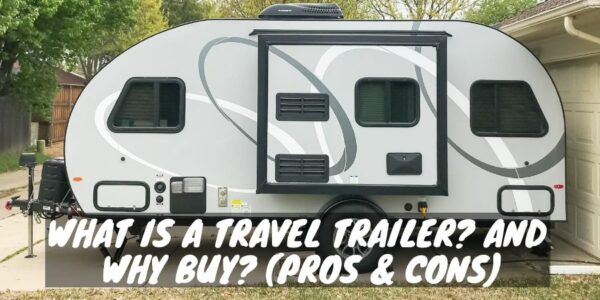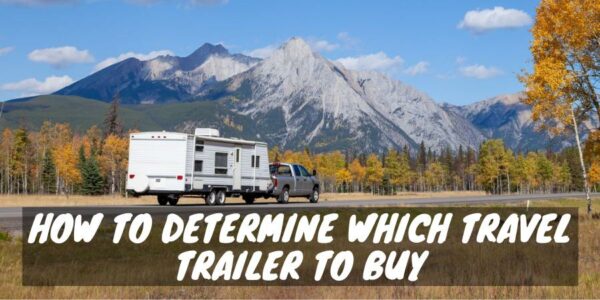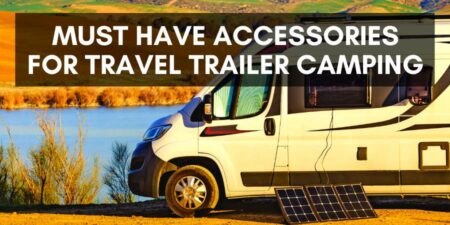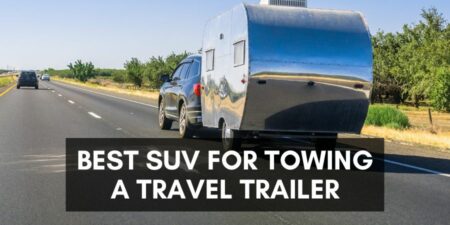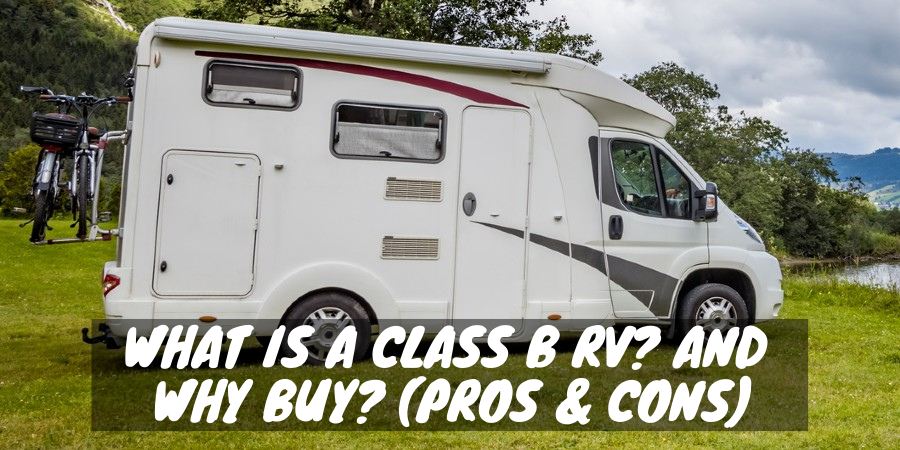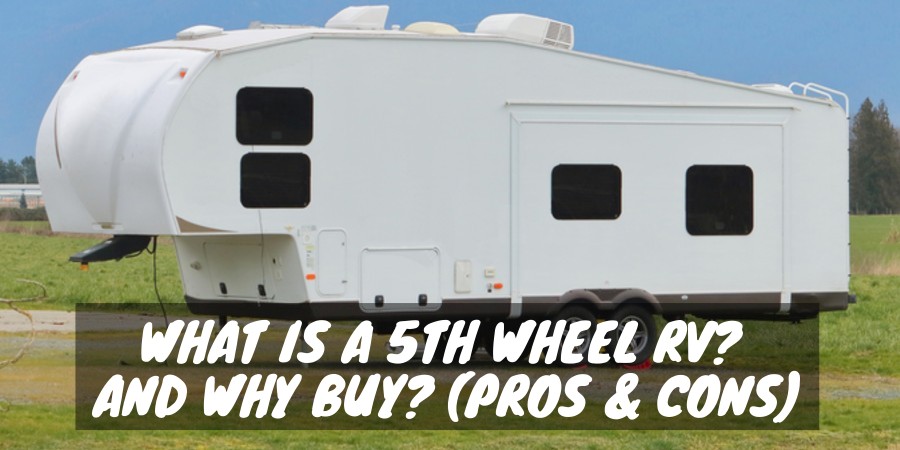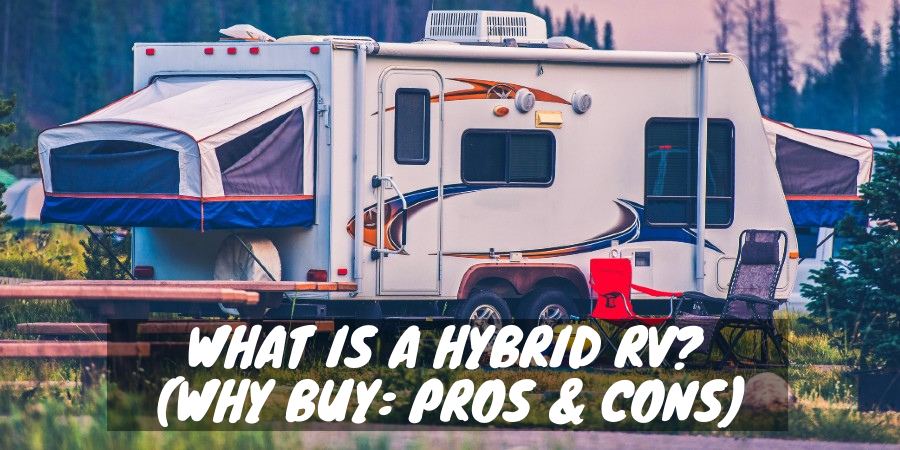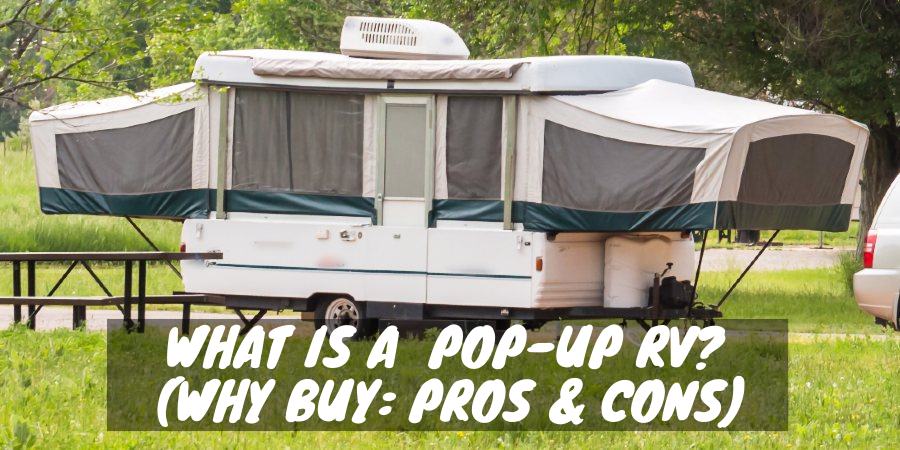Eighty-five percent of recreational vehicles are travel trailers, a broad family of RVs to fit the vacation and living needs of a diverse group of consumers. If you’re new to RV travel, here’s what you need to know about Travel Trailer Basics.
Travel Trailer 101
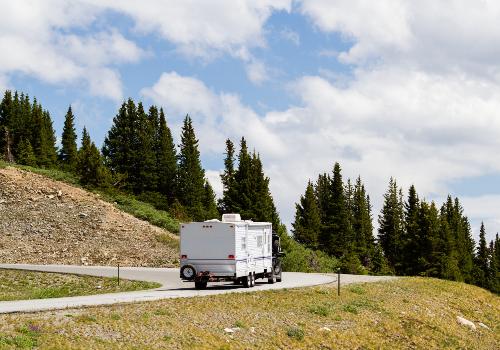
A travel trailer is simply a non-motorized vehicle with living quarters; it trails behind a tow vehicle. Travel trailers also are called towable recreational vehicles or towable RVs. All they have in common is that general description.
A conventional travel trailer is 12 to 35 feet in length and sleeps up to 10. It is towed by a motorized vehicle (sedan, SUV, pickup) using a rear hitch and safety equipment. A fifth-wheel travel trailer is 21 to 30 feet in length and sleeps up to 8. It is towed using a “fifth-wheel” hitch mounted in the bed of a pickup truck.
A folding camp trailer is 8 to 24 feet long and sleeps up to 6. Lighter in weight and more aerodynamic, it can be towed by a sedan or crossover vehicle. A park model trailer is up to 10 feet by 40 feet in size and is designed without water tanks to serve as a towable temporary residence.
Want to Connect With a Community of Over 1,078 RV Enthusiasts?
Each of these travel trailer types has variations. Conventional travel trailers can have expandable areas at the front and/or rear of the trailer or include slide-out areas on the sides.
Conventional and fifth-wheel trailers can have sport-utility rooms at the rear for motorcycles or off-road vehicles, accessible by a drop-down ramp. Some models also offer drop-down decks at the rear or curbside for increased living space.
Choose a Travel Trailer
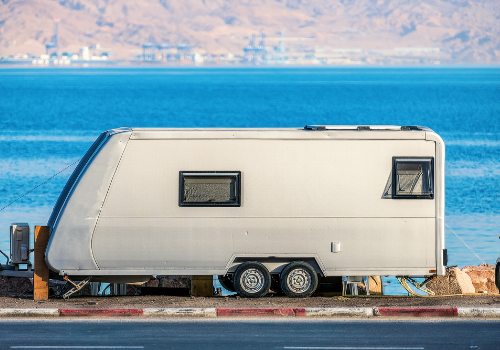
All travel trailers have similar features: a kitchen, bathroom sleeping area, and storage. Some models offer more living space, lower towing weight, room for toys, expanded sleeping areas, or other amenities for a variety of camping situations. To choose the best travel trailer for your use, ask:
- What is the type and Gross Vehicle Weight Rating (GVWR) of your towing vehicle (you may need to upgrade your vehicle)?
- Are you (and others in your camping group) comfortable driving a towed vehicle or can you get training?
- How many people and pets will be traveling and camping in the RV?
- How long will the camping trips be (days and miles per year)?
- Where will the trips be (city, mountains, snow, desert, rural)?
- New or used (used offers dramatic savings, but more maintenance and repair issues)?
- What type of bathroom (a “wet bath” with toilet below the shower or full bath with separate shower, toilet, sink, and storage)?
- Where will you store the travel trailer (at home is cheaper and more convenient)?
- Will you camp at commercial campgrounds, basic public campgrounds, or dry camp/boondock (dry camping requires solar or generator electricity and a larger water system)?
- What services will you need while camping (water, electricity, propane) and how will you get it (onboard tanks, plug-in electricity, generator, solar)?
- What is your RV camping budget?
Travel Trailer Tips
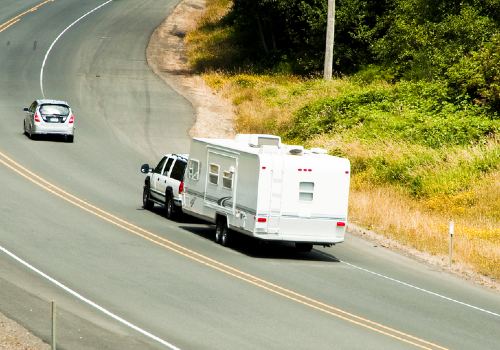
- Conventional travel trailers are the most popular for vacationing and are relatively less expensive than fifth-wheel and sport-utility trailers.
- Fifth-wheel trailers are easier to tow for their size than conventional trailers, but require a pickup truck for towing.
- Folding camp trailers are the least expensive and easiest to tow, but are not sufficiently insulated for cold-climate camping.
- Park model trailers are popular for seasonal living in mobile home and extended-stay parks. If necessary, they can be towed to new sites by a trailer towing service saving you owning a tow vehicle.
- Make sure your tow vehicle is more than adequate to pull your travel trailer through the type of terrain in which you will be camping.
- Be sure that you have the equipment and wiring needed to safely tow your travel trailer — and that you know how to use it.
Newbie Guide to Travel Trailer Campground Setup (Video)
"Man cannot discover new oceans unless he has the courage to lose sight of the shore."
-- Andre Gide

